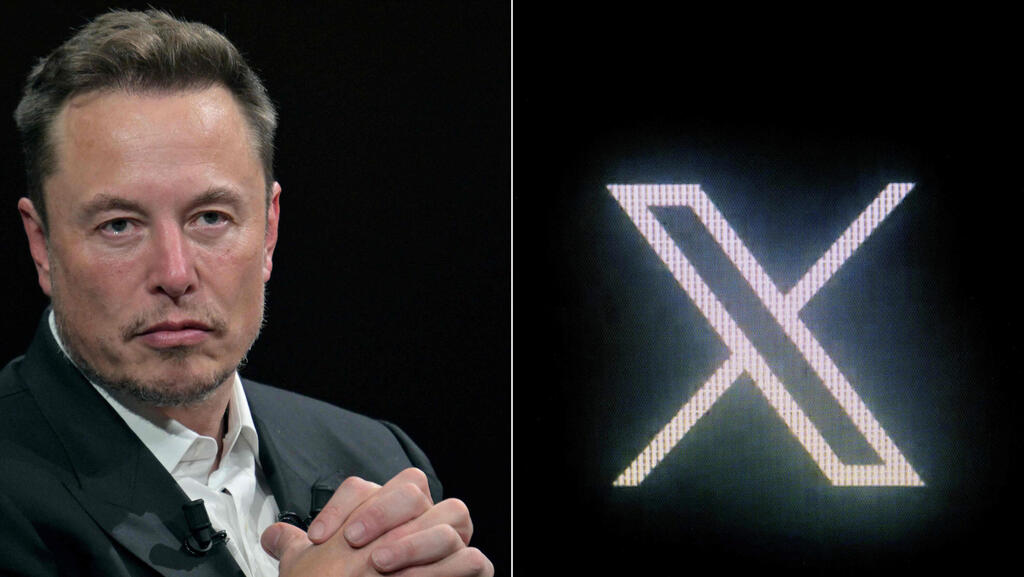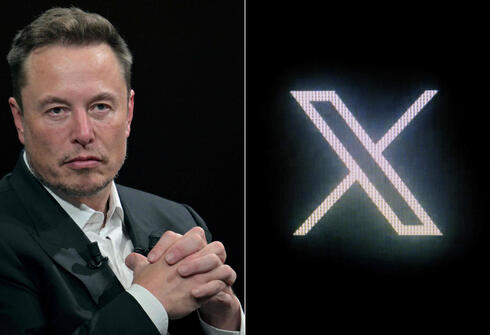
Degeneration X: “Musk has created a safe space for racists”
A new study shows that out of 200 sampled posts that include antisemitism, Holocaust denial, incitement against Muslims and Palestinians, etc.,196 (98%) remain available on the social network. These posts have collectively received more than 24 million views
The social network X (formerly Twitter) has not removed 98% of the posts that include antisemitism, incitement to violence against Jews, Holocaust denial and incitement against Muslims and Palestinians, and which were reported to it in the first week of November - according to a report by the Center for Countering Digital Hate (CCDH) published yesterday.
"Elon Musk has created a safe space for racists," CCDH founder and CEO Imrad Ahmed said in a press release. "This is the inevitable result of cutting security and content monitoring teams, inviting previously blocked hateful actors to return to the platform, and giving greater visibility to anyone who agrees to pay $8 a month.”
Since the outbreak of the war, various researchers have pointed to an increase in the scope of incitement and antisemitism on various social platforms, chief among them X. In order to test how Musk's social network copes with this increase, CCDH researchers sought to examine how it reacts when it receives a direct report on posts that clearly contradict its content policy.
As a first step, the researchers identified a list of accounts that regularly publish hateful content. From these accounts, between one and six posts with clearly hateful or inflammatory content, published after the murderous terrorist attack by Hamas on October 7, were selected. These included calls for violence against Jews and Muslims, statements such as "Hitler saw the Jews as they really are," Holocaust denial, antisemitic cartoons, glorification of Hitler and Nazism and statements that Muslims are "stinking rats" or that the residents of the Gaza Strip are all "animals".
In total, the researchers selected 200 posts from 101 accounts. These posts have collectively received more than 24 million views. 43 of the accounts were verified accounts, i.e. those that pay X to display a blue checkmark and greater exposure of their content. Between October 31 and November 7, the researchers reported the dangerous posts to Twitter, and waited a week to see how the company would respond to the reports. In the world of social media, where a post gets the most exposure in the first few days after its publication, a platform needs to respond almost immediately, or within less than a day, to reports of this nature. The one-week wait gives X above and beyond the time needed to handle such content, when it is no longer of fundamental importance whether the post has been removed or not in light of the exposure it has already accumulated.
The findings at the end of a week were discouraging: the vast majority of reported content remained available on X, with the only change being the addition of a note at the top stating that the post's visibility had been limited. And this only was added after the post had already exhausted most of its exposure potential. This move is more problematic than the lack of response, as it indicates that X examined the posts, agreed that they contained hateful or inflammatory content, and yet consciously chose not to take them down. In addition, of the 101 accounts reported, only one was suspended and two others were "locked" (presumably, until their owners take advantage of the opportunity and delete the inflammatory posts themselves).
Related articles:
"After the horrific and unprecedented acts of terrorism in Israel, and the military confrontation between Israel and Hamas, hate actors jumped at the opportunity to hijack social media platforms to broadcast their racism and promote physical violence against Jews and Muslims," Ahmed said. "X assured advertisers and the public that they handle hate speech, but our research indicates that it is nothing more than empty words. Our research reveals that hate actors have a free pass to publish violent antisemitic content and hate speech on Elon Musk's platform."
